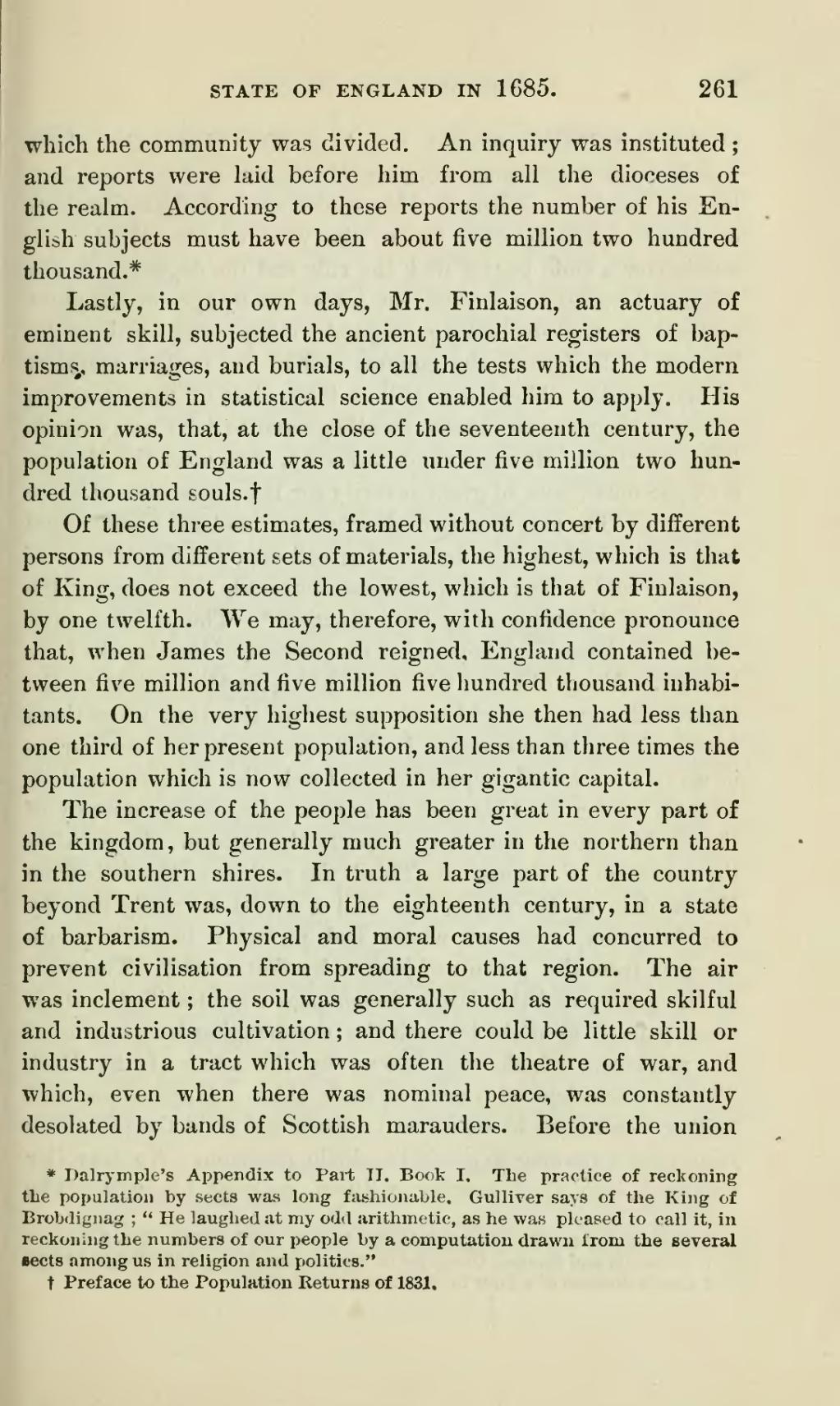which the community was divided. An inquiry was instituted; and reports were laid before him from all the dioceses of the realm. According to these reports the number of his English subjects must have been about five million two hundred thousand.[1]
Lastly, in our own days, Mr. Finlaison, an actuary of eminent skill, subjected the ancient parochial registers of baptisms, marriages, and burials, to all the tests which the modern improvements in statistical science enabled him to apply. His opinion was, that, at the close of the seventeenth century, the population of England was a little under five million two hundred thousand souls.[2]
Of these three estimates, framed without concert by different persons from different sets of materials, the highest, which is that of King, does not exceed the lowest, which is that of Finlaison, by one twelfth. We may, therefore, with confidence pronounce that, when James the Second reigned, England contained between five million and five million five hundred thousand inhabitants. On the very highest supposition she then had less than one third of her present population, and less than three times the population which is now collected in her gigantic capital.
The increase of the people has been great in every part of the kingdom, but generally much greater in the northern than in the southern shires. In truth a large part of the country beyond Trent was, down to the eighteenth century, in a state of barbarism. Physical and moral causes had concurred to prevent civilisation from spreading to that region. The air was inclement; the soil was generally such as required skilful and industrious cultivation; and there could be little skill or industry in a tract which was often the theatre of war, and which, even when there was nominal peace, was constantly desolated by bands of Scottish marauders. Before the union
- ↑ Dalrymple's Appendix to Part II. Book I, The practice of reckoning the population by sects was long fashionable. Gulliver says of the King of Brobdignag; "He laughed at my odd arithmetic, as he was pleased to call it, in reckoning the numbers of our people by a computation drawn from the several sects among us in religion and politics."
- ↑ Preface to the Population Returns of 1831.
